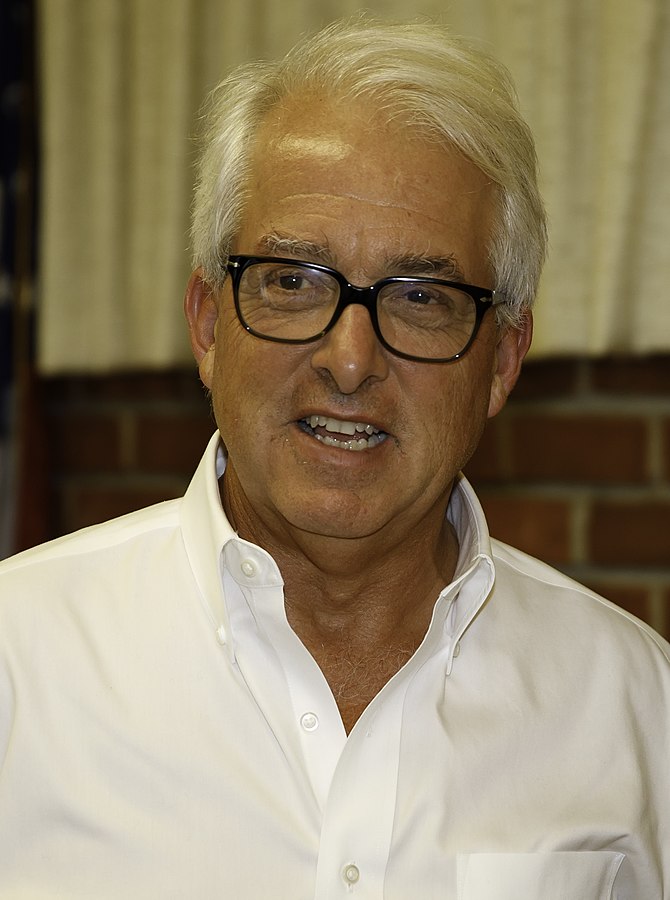News
Governor candidates spar on vision for California

“I’m not going to get in the middle of that. I’m focused on the issues in California,” Cox said. (File Photo: By Tommy Lee Kreger/Wikimedia commons, CC BY 2.0)
SAN FRANCISCO — Republican John Cox entered the only scheduled debate in the campaign for California governor on Monday as an underdog in need of a race-altering breakthrough. He didn’t get it.
Instead, at a time when politics in Washington and across the nation are marked by bitter partisan fights, the hour-long radio debate between Cox and Democrat Gavin Newsom remained civil, with the candidates sparring on policy and mostly avoiding personal attacks.
Cox, a businessman from the San Diego area, batted away questions about his past statements opposing gay marriage and declined to take a position on the appointment of Brett Kavanaugh to the U.S. Supreme Court.
He stuck closely to the central theme of his campaign, laying the high cost of living in California at the feet of Newsom and the Democratic policies he supports.
The debate — staged on the same day that early voting began in the state — appeared to do little to change the trajectory of the race that heavily favours Newsom.
With the debate broadcast only on the radio during working hours, Cox needed a moment that would get repeated play in the media, said Jack Pitney, a political science professor at Claremont McKenna College in Southern California.
“His chance for a breakout would’ve been some kind of rhetorical master stroke that put Newsom on the defensive and cast (Cox) as a champion of ordinary Californians,” Pitney said. He did not listen to the debate but said media coverage suggested Cox’s performance was “underwhelming.”
Cox said the campaign is about change versus the status quo.
“I represent change,” Cox said in arguing that the policies of Democrats have made California unaffordable.
He repeatedly blamed the influence of special interests in Sacramento for driving up costs, though he identified them only as “environmental groups that fund the Legislature as well as Gavin’s campaign.”
After the debate, Cox complained that too much time was spent on national issues that the next governor won’t influence. He then rushed to an elevator and declined to take questions from reporters.
Newsom, the lieutenant governor and a former San Francisco mayor, tied his rival to President Donald Trump, whose endorsement was crucial to Cox surviving the primary.
Since then, Cox has not talked much about Trump, who is popular among Republicans but viewed negatively by Democrats and unaffiliated voters in California.
“We represent the vast majority of Californians that reject John Cox’s absolute allegiance to Trump and Trumpism,” Newsom said during what’s likely to be the only one-on-one contest between the two men before the Nov. 6 election.
Cox stuck with Trump on issues such as ending California’s sanctuary state policy and building a wall along the Mexico border.
He declined to weigh in on the bitter fight over Kavanaugh’s nomination, even as Republicans nationwide are celebrating his confirmation.
Kavanaugh’s confirmation was in doubt after Christine Blasey Ford, a professor from the San Francisco Bay Area, said Kavanaugh assaulted her at a party when both were in high school. Kavanaugh denies the allegation.
Cox issued a call Monday for “more comity, more kindness” in politics, adding “Dr. Ford needed to be heard and should’ve been believed.” Cox did not elaborate.
He declined to say whether he would have voted to confirm Kavanaugh had he been in the Senate.
“I’m not going to get in the middle of that. I’m focused on the issues in California,” Cox said.
Newsom opposed Kavanaugh’s nomination and says the justice could cast a pivotal vote on cases important to Californians that involve property rights, immigration, abortion and health care.
Both candidates agreed that tackling issues such as housing affordability, homelessness and California’s cost of living should be the priority of the next governor, but they presented vastly different visions for how to proceed.
Cox said he’d roll back environmental regulations to make housing construction cheaper and faster, while Newsom points to tax reform to spur governments to approve more housing.
They also differed on criminal justice. Cox opposed a new law that opens police misconduct records to the public, criticized departing Democratic Gov. Jerry Brown’s decisions on parole and said he would concentrate on keeping guns out of the hands of the mentally ill over other gun control measures.
He also urged the media to stop publicizing the names and photographs of mass shooters.
Newsom said he would expand Brown’s criminal justice reforms, which reduced sentences for some offences, particularly drug crimes.
A September poll by the Public Policy Institute of California showed Newsom with a comfortable but shrinking lead over Cox — 51 per cent to 39 per cent with 7 per cent of likely voters undecided. The survey had a margin of error of 4 percentage points.
Campaign finance records show Newsom had $16 million in the bank on Sept. 22, compared with $1.7 million for Cox.





















